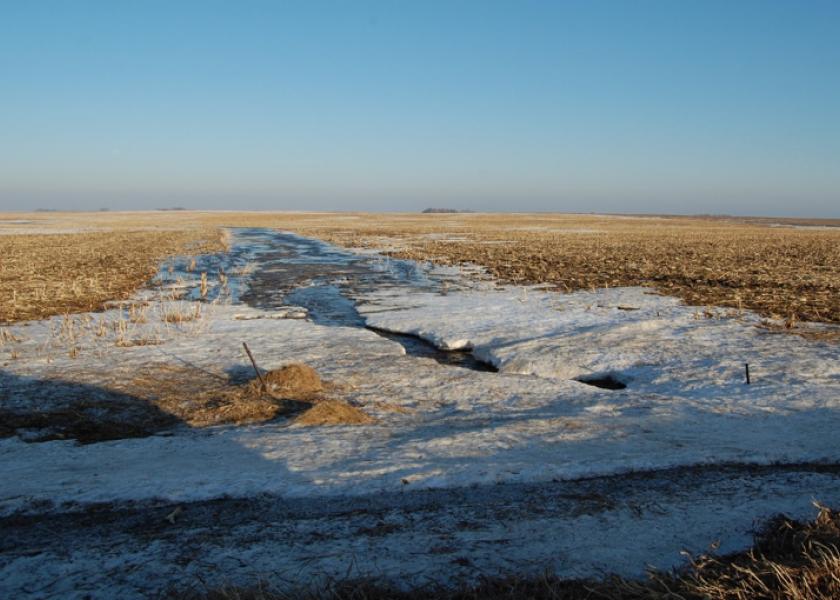Winter Manure Application And 10 Best Application Tips

When manure is surface applied to snow-covered or frozen ground, there is an increased risk for manure runoff and consequently nutrient runoff into Iowa’s waters. Due to this increased risk, winter manure application is not recommended.
State law prevents confinement facilities with 500 or more animal units from applying liquid manure on ground with an inch of snow or one-half inch of ice from December 21st - April 1st or on frozen ground February 1st - April 1st except in an emergency. If emergency application is necessary, producers must call the local DNR field office to report emergency applications before they apply. Additionally, if you have a National Pollutant Discharge Elimination System (NPDES) permit, winter application may be limited. Those with a Comprehensive Nutrient Management from NRCS need to carefully review their plan, as that does not allow winter application except in designated emergencies.
While the snow and frozen ground rules do not apply to open feedlots or poultry operations, manure application during winter months presents tough management decisions. If winter application is unavoidable, be sure to follow our Top Ten List of winter manure application considerations to ensure minimal nutrient loss and water quality impacts.
Top Ten Winter Manure Application Considerations:
- Take into account soil and weather conditions, avoid applying immediately prior to a precipitation or snowmelt event.
- Follow all separation distances (available here); even if separation distances are followed a water quality violation may still occur, so if possible increase the setback.
- Apply on the flattest slopes as far away from water sources as possible.
- Avoid application on areas that drain to surface tile intakes.
- Do not apply manure in a grassed waterway.
- Apply to areas where soil erosion is controlled.
- Store or stockpile manure in a way that does not cause runoff.
- Apply to areas of less snow-cover.
- Update your Manure Management Plan to reflect surface application rates.
- Receive approval for surface application if subject to Master Matrix requirements for injection or incorporation.







